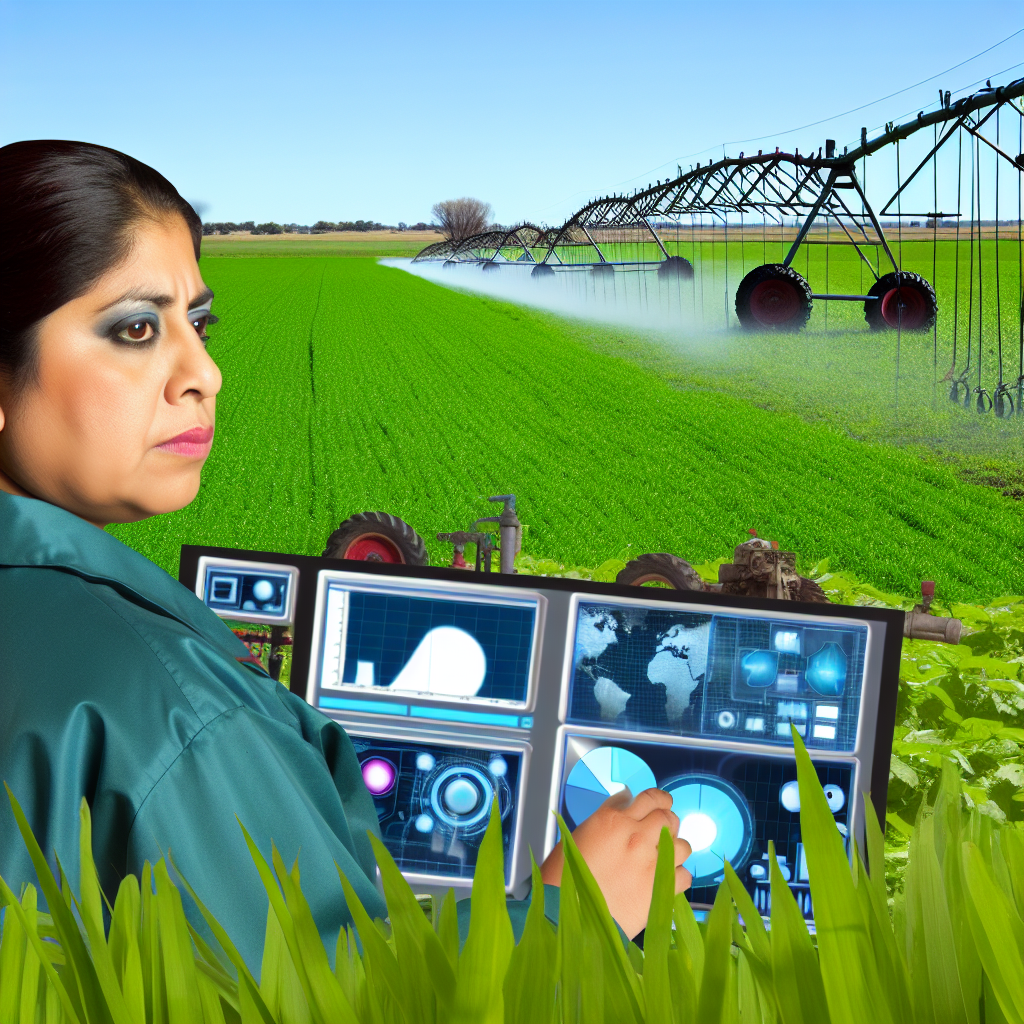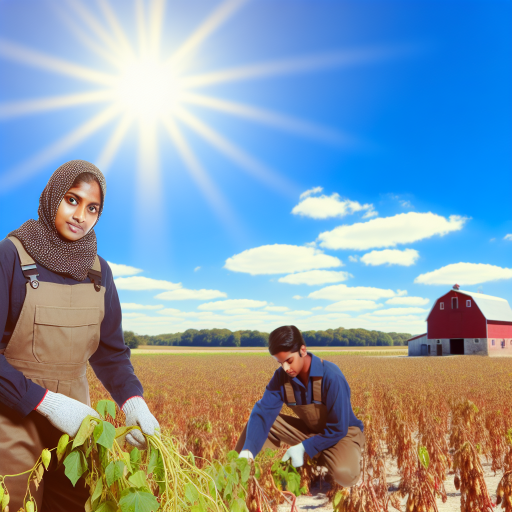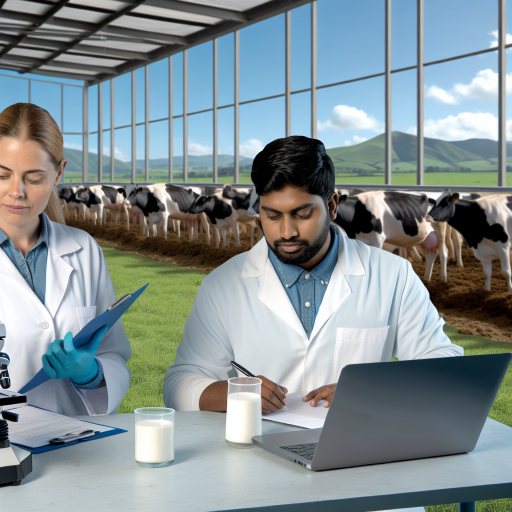Introduction:
Effective irrigation techniques play a crucial role in agriculture.
They impact landscaping and horticulture industries significantly.
The proper application of water can affect crop yield and plant health.
Overall sustainability in these fields is also influenced.
Furthermore, innovation in irrigation practices is essential.
Improving efficiency helps ensure long-term sustainability.
Advancements in technology and techniques enable specialists.
They can utilize resources more effectively.
Reducing water wastage is another key benefit.
Moreover, minimizing environmental impact is crucial.
Traditional Irrigation Methods
Traditional irrigation methods include techniques like flood irrigation and furrow irrigation.
Flood irrigation involves flooding the field with water to hydrate crops.
Furrow irrigation creates channels to direct water to crops in rows.
Limitations of Conventional Approaches
Significant water wastage occurs due to evaporation and runoff.
Uneven distribution of water can lead to overwatering in some areas.
Importance of Innovation in Irrigation
Innovation is crucial in the field of irrigation for several reasons.
- Innovative techniques are essential to address challenges like water scarcity.
- New methods can help mitigate the environmental impact of traditional irrigation practices.
- Specialists play a critical role in driving innovation within the irrigation sector.
- Experts are at the forefront of research and development, creating cutting-edge solutions.
- By fostering creativity and experimentation, specialists can pioneer groundbreaking techniques.
Water scarcity is a significant concern globally, with many regions facing shortages.
- Traditional irrigation methods often exacerbate water scarcity issues.
- Innovative techniques, such as drip irrigation, can maximize water efficiency.
- Specialists collaborate to develop technologies that reduce water wastage in agriculture.
- By optimizing water use, innovative irrigation practices can help conserve this precious resource.
Environmental impact is another critical consideration in irrigation practices.
- Conventional irrigation methods can lead to soil degradation and water pollution.
- New technologies, like precision irrigation, minimize negative environmental effects.
- Specialists focus on eco-friendly solutions that promote sustainable agriculture.
- Through innovative approaches, experts aim to preserve ecosystems and biodiversity.
Specialists play a pivotal role in advancing irrigation techniques and overcoming challenges.
- These professionals possess knowledge and expertise that drive innovation forward.
- Specialists collaborate with researchers, engineers, and policymakers to develop cutting-edge solutions.
- By engaging in continuous learning and improvement, specialists lead the way in irrigation innovation.
- Their dedication to finding sustainable and efficient methods is key to the future of agriculture.
Innovation in irrigation is crucial for adapting to changing environmental conditions.
Transform Your Career Today
Unlock a personalized career strategy that drives real results. Get tailored advice and a roadmap designed just for you.
Start Now- Specialists are instrumental in developing and implementing innovative techniques.
- By leveraging their expertise, specialists can address water scarcity and environmental impact.
- Collaboration among specialists is essential to drive progress in irrigation practices.
- Their commitment to innovation paves the way for a more sustainable and productive agricultural sector.
Gain More Insights: Understanding Irrigation Scheduling and Management
Drip Irrigation Systems
Drip irrigation is a method of watering plants by applying water slowly and directly to the soil surface or root zone.
This technique is highly efficient and minimizes water waste by delivering water right where it’s needed.
One of the main benefits of drip irrigation is its ability to reduce water usage.
By delivering water directly to the plant roots, it can save up to 50% more water compared to traditional irrigation methods.
Additionally, drip irrigation helps in preventing diseases and weeds.
Since the water is targeted at the root zone and not sprayed all over the foliage, it reduces the chances of diseases spreading and minimizes weed growth.
Implementing drip irrigation systems in agriculture has shown significant improvements in crop yield and quality.
By providing a consistent water supply to the plants, it helps in achieving better growth and healthier crops.
In landscaping, drip irrigation is an excellent solution for maintaining gardens and green spaces.
It ensures that plants receive adequate moisture without wasting water through evaporation or runoff.
Successful implementation of drip irrigation can be seen in vineyards, orchards, and vegetable farms.
Farmers have reported better harvests and improved crop health due to the precise delivery of water.
Landscapers have also benefited from drip irrigation systems in creating visually appealing and sustainable landscapes.
By customizing the irrigation to specific plant needs, they can achieve beautiful designs while conserving water.
Overall, drip irrigation is a versatile technique that offers numerous advantages for specialists in agriculture and landscaping.
Its efficiency, precision, and water-saving benefits make it a valuable tool in professional irrigation practices.
Discover More: Success Stories from Extension Agent Initiatives
Smart Irrigation Technology
Smart irrigation systems utilize sensors and automation to optimize water usage.
- Efficient water management
- Real-time monitoring of soil moisture
- Reduced water wastage
- Precise irrigation scheduling
Smart technology in irrigation offers numerous advantages for specialists in the field.
Transform Your Career Today
Unlock a personalized career strategy that drives real results. Get tailored advice and a roadmap designed just for you.
Start Now- Cost savings on water bills
- Improved crop yield and quality
- Environmental conservation
- Less manual intervention required
By incorporating smart irrigation systems, specialists can revolutionize their approach to irrigation techniques.
Delve into the Subject: Understanding Veterinary Technician Licensing
Precision agriculture techniques:
When it comes to innovative irrigation techniques for specialists, precision agriculture plays a crucial role.
Precision agriculture involves using technology to optimize crop production while minimizing inputs such as water, fertilizers, and pesticides.
Explore precision agriculture methods:
- Variable rate irrigation:
- Remote sensing:
Variable rate irrigation is a technique that allows farmers to adjust the amount of water applied to different parts of a field based on the specific needs of the crops.
This can help optimize water usage and ensure that plants receive the right amount of moisture.
Remote sensing involves using satellites and drones to collect data on crop health, soil moisture levels, and other factors that affect irrigation decisions.
This data can help farmers make more informed choices about when and where to irrigate, leading to more efficient water usage.
Discuss the impact of precision techniques:
- Maximizing crop yield:
- Minimizing water consumption:
One of the main benefits of precision agriculture techniques is their ability to maximize crop yield.
By ensuring that crops receive the right amount of water at the right time, farmers can optimize the growth and development of their plants, leading to higher yields.
Another key advantage of precision techniques is their ability to minimize water consumption.
By only applying water where and when it is needed, farmers can reduce water waste and improve the overall efficiency of their irrigation systems.
Precision agriculture techniques such as variable rate irrigation and remote sensing are essential tools for specialists looking to improve crop yield and minimize water consumption.
By harnessing the power of technology, farmers can optimize their irrigation practices and achieve more sustainable and profitable outcomes.
Stay tuned for more innovative irrigation techniques for specialists!
Uncover the Details: Key Regulations for Agricultural Quality Control Inspectors

Sustainable Irrigation Practices:
– Sustainable irrigation practices are crucial for preserving water resources in agriculture.
– By adopting sustainable techniques, specialists can ensure long-term water availability for crops.
– One key practice is rainwater harvesting, where rainwater is collected and stored for irrigation.
– Rainwater harvesting helps reduce reliance on traditional water sources like rivers and groundwater.
– Specialists can set up rainwater collection systems on farms to capture and store rainwater efficiently.
Transform Your Career Today
Unlock a personalized career strategy that drives real results. Get tailored advice and a roadmap designed just for you.
Start Now– Another sustainable technique is greywater recycling, which involves reusing wastewater from households for irrigation.
– Greywater, which includes water from showers, sinks, and washing machines, can be treated and used for watering plants.
– By recycling greywater, specialists can minimize the use of fresh water for irrigation purposes.
– Implementing sustainable irrigation practices not only conserves water but also reduces the environmental impact of agriculture.
– Specialists play a vital role in promoting sustainable irrigation practices and creating a more efficient water management system.
– Education and training programs can help specialists understand the benefits of sustainable irrigation practices and how to implement them effectively.
Collaboration with Other Specialists:
Collaboration with specialists from various disciplines can lead to the development of innovative irrigation techniques that can revolutionize the field of agriculture.
Benefits of Interdisciplinary Collaboration:
- Enhanced problem-solving: Different specialists bring unique perspectives to the table, which can lead to more creative and effective solutions.
- Increased efficiency: By pooling resources and expertise, specialists can work together to streamline processes and achieve results more quickly.
- Expanded knowledge base: Collaboration allows specialists to learn from each other and gain new insights that can drive innovation in irrigation techniques.
- Improved decision-making: When specialists from different fields work together, they can make more informed decisions that take into account a wide range of factors.
How Specialists from Different Fields Can Collaborate:
- Organize interdisciplinary workshops: Bringing specialists together for workshops can foster communication and collaboration on innovative irrigation solutions.
- Establish research partnerships: Collaborating on research projects can lead to the development of cutting-edge irrigation techniques that benefit from diverse expertise.
- Utilize technology: Specialists can use digital platforms and tools to collaborate remotely and share information in real-time, enabling seamless collaboration.
- Attend conferences and events: Networking at industry events can connect specialists with potential collaborators and spark new ideas for irrigation innovation.
Interdisciplinary collaboration is essential for developing innovative irrigation techniques that can address the challenges facing agriculture today.
By working together, specialists from different fields can leverage their unique expertise to create solutions that are sustainable, efficient, and effective in improving irrigation practices.
Future Trends in Irrigation Technology
As specialists in the field of irrigation, it is crucial to stay ahead of the curve.
Anticipating the future trends will shape the industry.
One of the most exciting developments on the horizon is the integration of artificial intelligence (AI) into irrigation systems.
AI-driven systems have the potential to revolutionize the way we manage water resources.
They optimize the timing and amount of water delivery to crops based on real-time data.
Predictive analytics improve water efficiency and maximize crop yield.
Another emerging trend is drone-based irrigation.
This involves using drones equipped with sensors and cameras to monitor crop health.
The drones can cover large areas of farmland quickly and provide detailed information.
This includes soil moisture levels, plant stress, and pest infestations.
The data can then be used to adjust irrigation schedules and practices.
Transform Your Career Today
Unlock a personalized career strategy that drives real results. Get tailored advice and a roadmap designed just for you.
Start NowThis leads to more precise and targeted watering.
It reduces water waste and lowers operational costs.
The potential impact of these future trends on the field of irrigation is immense.
By leveraging AI-driven systems and drone-based technology, specialists can make more informed decisions.
This leads to more sustainable practices and increased profitability.
These innovative techniques also help address the challenges posed by climate change.
Droughts and water scarcity are significant issues in agriculture.
The integration of these technologies ensures long-term viability.
As specialists in irrigation, it is essential to embrace future trends.
Proactively adopting innovative techniques is key.
By harnessing the power of AI and drones, we can improve water efficiency.
Crop productivity can also see significant improvements.
This contributes to a more sustainable agricultural sector.
Innovative Irrigation Techniques for Sustainable Agriculture
Innovative irrigation techniques are changing the game for irrigation specialists.
These methods offer more efficient and sustainable practices.
It is crucial for specialists to stay updated on these advancements.
This knowledge can enhance their practice significantly.
From precision agriculture to smart irrigation systems, numerous tools are available.
These tools can increase productivity and reduce water waste effectively.
Additionally, specialists must continuously educate themselves.
Transform Your Career Today
Unlock a personalized career strategy that drives real results. Get tailored advice and a roadmap designed just for you.
Start NowThis will help them adapt to changing environmental conditions and regulations.
By incorporating innovative irrigation techniques, specialists can improve crop yields.
They can also contribute to water conservation efforts positively.
Investing in research and training in this field will be beneficial.
Both specialists and the environment will benefit in the long term.
By staying informed and embracing innovation, irrigation specialists can elevate their practice.
They can also make a positive impact on agriculture and water resources.
Additional Resources
Improving water-efficient irrigation: Prospects and difficulties of …




